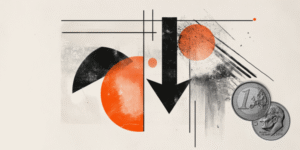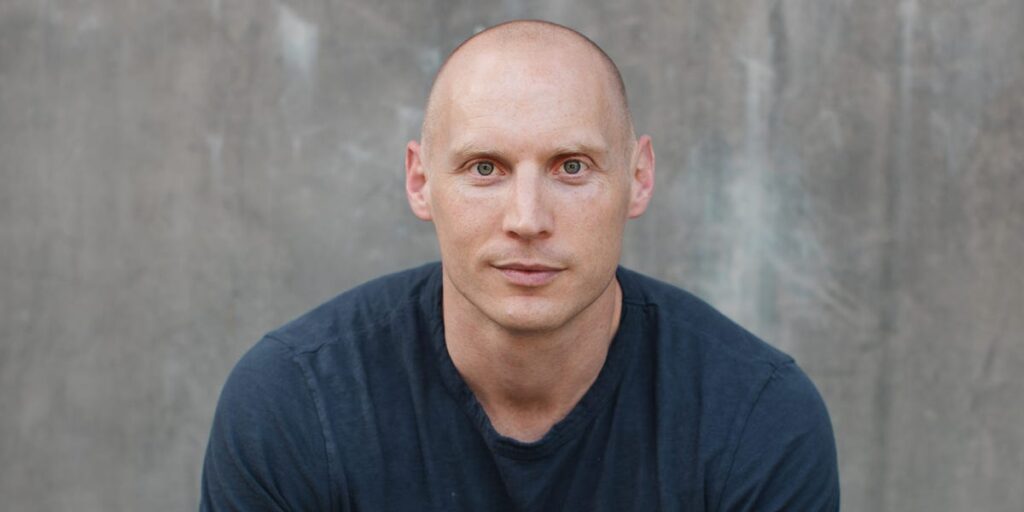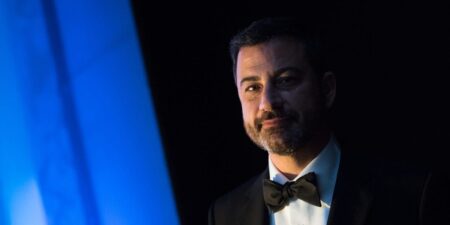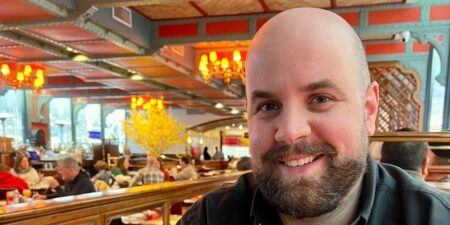In his 20s, Dugal Bain-Kim was all about getting swole: lifting big weights, doing long gym sessions, and trying every supplement he could get his hands on.
Now at 41, he has different priorities.
“When I was younger, I had more time to take a spray-and-pray approach to my health and wellness,” Bain-Kim, CEO and cofounder of the longevity startup Lifeforce, told Business Insider. “There’s enough going on in life to have to be really efficient and really clear about what my most important goals are.”
Last year, Bain-Kim had a stark reality check about his health when his father was diagnosed with Alzheimer’s disease. His condition deteriorated quickly, and he recently died at age 70.
Knowing his genetic risk, Bain-Kim said he is making some major changes to his routine to protect his brain as much as possible.
“There’s this common misperception that Alzheimer’s and dementia are like getting struck by lightning, it’s just bad luck and there’s nothing to do about it,” Bain-Kim said. “Having that information can lead someone to think differently about their life.”
From microdosing GLP-1 medication to switching up his workouts, here’s what he’s doing differently that he hopes will move the needle.
Taking creatine: a rising star supplement
While many trendy supplements promise better longevity and brain health, Bain-Kim isn’t convinced.
“In general, people are taking too many supplements,” he said.
However, he believes one standout exception is creatine, a fitness supplement originally sold for muscle-building that may also protect our brains.
Creatine is a combination of amino acids that our bodies naturally produce to provide energy to tissues like muscle. For years, athletes have used it as a supplement to top up their body’s energy reserves to fuel muscle growth.
Emerging research suggests that creatine could have a similar effect on the brain, giving our brain cells extra resources to fend off cognitive decline and stressors like sleep deprivation.
Bain-Kim said he takes creatine daily, alongside protein powder and glutamine (for healthy joints).
Microdosing GLP-1 medication
Blockbuster drugs like semaglutide (sold as Ozempic and Wegovy) and tirzepatide (Mounjaro, Zepbound) are known as GLP-1s. They work on hormone receptors to manage appetite and metabolism.
But growing research suggests that they could have even further-reaching benefits for the brain.
Bain-Kim said he was intrigued by new research that the medications could help stave off cognitive decline. Recent studies have shown GLP-1s like semaglutide and liraglutide are linked to a lower risk of dementia and may slow down the process of brain shrinkage and related thinking problems as we age. More clinical trials are ongoing.
That has inspired Bain-Kim to explore microdosing a GLP-1 himself.
Doing more Zone 2 cardio
The evidence is clear: building a strong body can help protect your brain, too.
Bain-Kim still lifts weights but decided to double down on cardio. A healthy heart and blood flow are essential to keeping the brain functioning well over time.
In particular, exercise like jogging or biking at a lower heart rate (known as Zone 2) can help build a stronger, healthier heart.
Bain-Kim said he’s added two sessions a week of light cardio exercise to his routine.
To round out his weekly exercise, he also plays a match of competitive pickleball regularly, as higher-intensity activity helps to boost VO2 max for better fitness and longevity.
Switching to a MIND diet
Bain-Kim said he’s optimizing his diet for cognitive health, tweaking his already-healthy Mediterranean diet with even more emphasis on brain-protecting foods.
His new routine is based on the MIND diet, which Harvard researchers developed to help prevent cognitive decline.
It emphasizes nutrients like fiber and healthy fats such as omega-3s that support the brain, through a weekly goal of:
- 6 (or more) servings of leafy greens
- 5 servings of nuts
- 4 servings of beans
- 2 servings of berries
- 1+ serving of fatty fish like salmon, mackerel, or sardines
- Olive oil as your primary cooking oil
Making sleep a priority
It may not be flashy, but a good night’s sleep is the cornerstone of Bain-Kim’s daily routine to protect his brain.
He said his personal sweet spot for peak health and performance is about seven hours and 45 minutes of quality sleep, not just time in bed. Neuroscientists recommend between seven and nine hours of sleep.
“Everyone appreciates a good night’s sleep, but for me that’s now core to my strategy because of the brain protection benefits of getting enough sleep,” Bain-Kim said. “It’s become the non-negotiable for me.”
Read the full article here
















